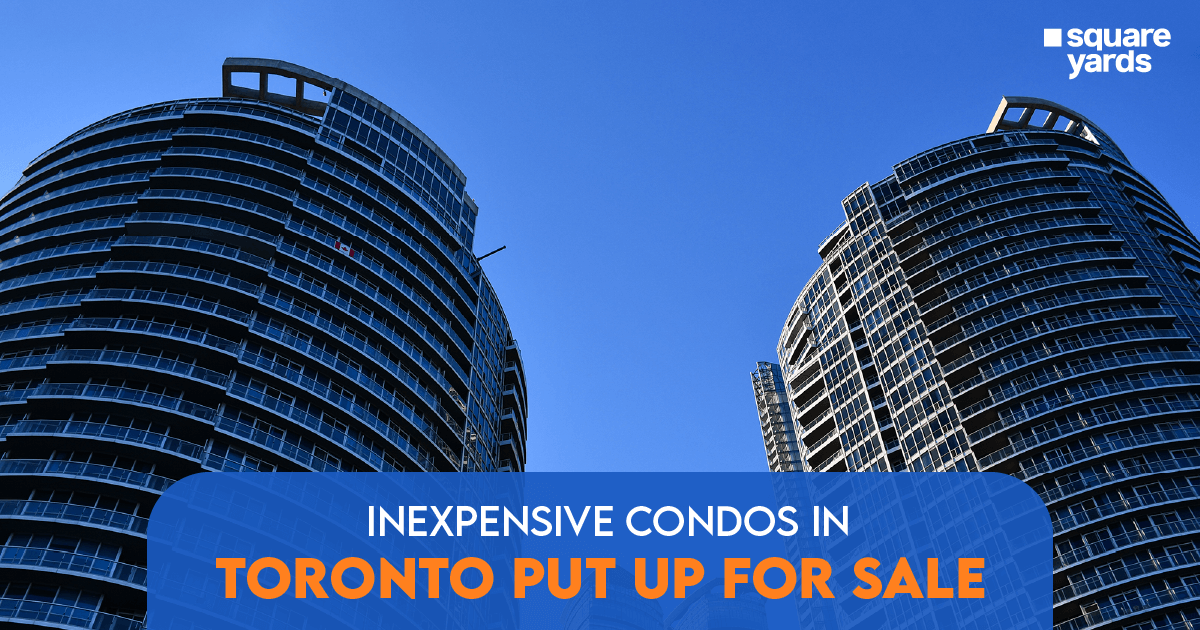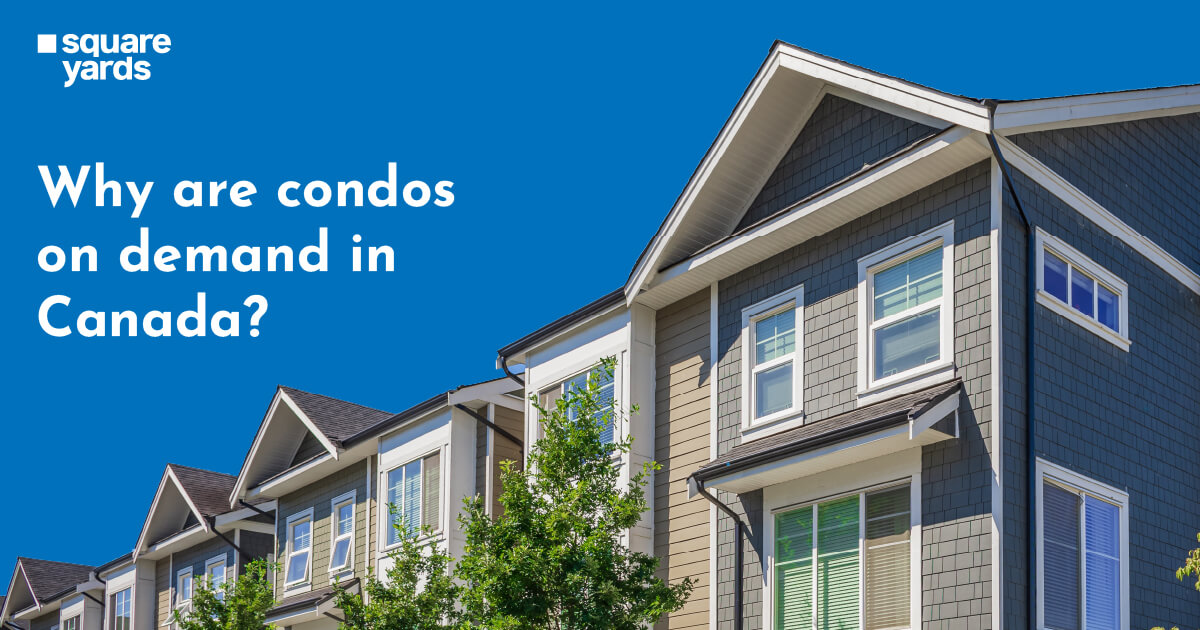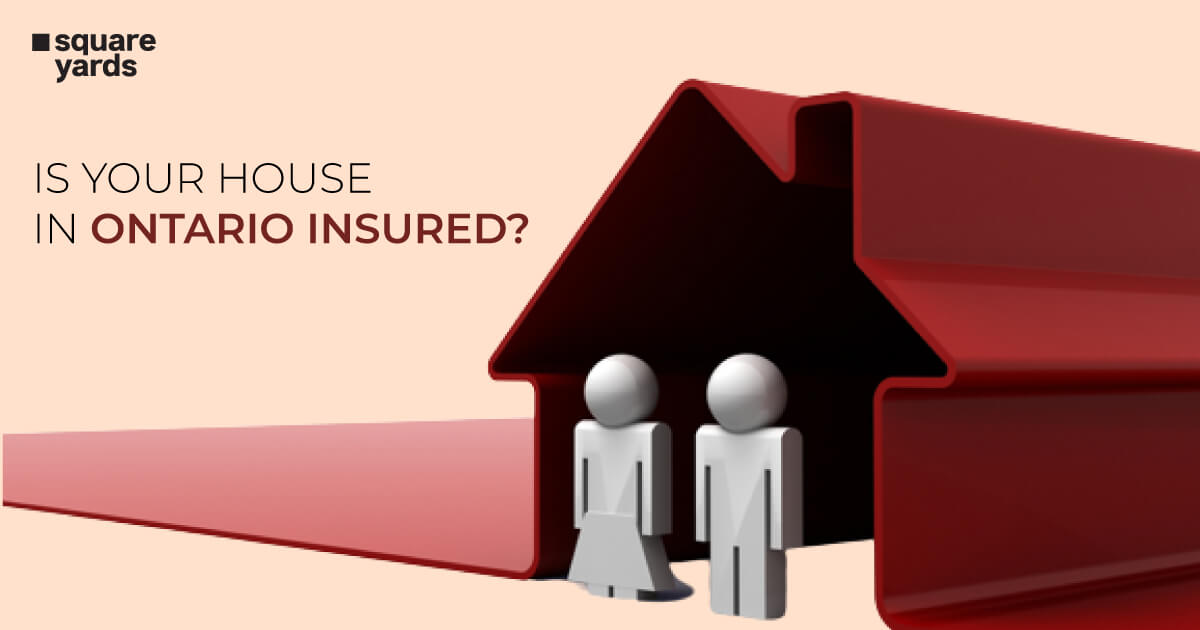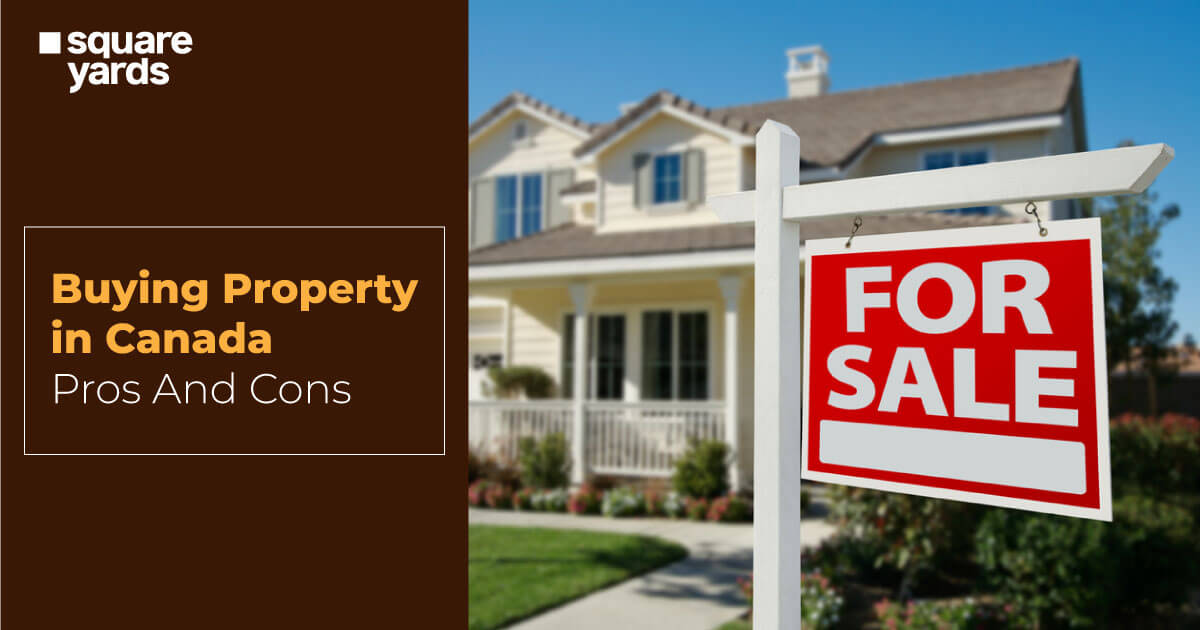Canada is an alluring country and especially in terms of real estate as its lower tax prices attract people across the world to invest in the Canadian real estate market. You can avail tax benefits in Canada just by scrolling some important home buying tips. The property market of Canada allows interest deductions, foreign tax credits, investment tax credits along with expense and fees deductions. Condos are one of the most bought property types in Canada which brings along multiple benefits. So let’s browse below some condo buying tips and know how to buy a condo in Canada?
Know All About Condo
A condo is a private single unit that is retained via an individual. Even though the units are owned privately they still share a common shed in a single multistory building. Condominium buildings can comprise common facilities for the owners of the unit just pools, gym, and terrace. The condo owner has to pay a charge month-wise in order to manage administration staff, security, and maintenance.
Quick Tips to Buy Condominium in Canada
A few quick condo buying tips to get you started with the process of buying a condo:
-
Approach a Condominium Specialist Realtor

Even though you can search for condo buying tips and listings all by yourself, you are not likely to retain the proficiency that a realtor has. An expert agent can help you guide through all the documentation, important condominium terms, and contracts required to finalise the deal. Most significantly, a knowledgeable agent might know more about a building’s past. For instance, they might be aware of the developer’s track record, previous construction problems, or condos that are prone to floods. You can avoid certain property managers, developers and locales with the aid of their business knowledge. Just knowing this could prevent you from making an expensive error.
-
Check out The Condo Charges
If you ask, the management of the condo will give you this information. It is crucial to enquire specifically about the fund of reserve, prices of condo, special assessments, and condo buying tips and fees.
Condo Charges: These are the recurring charges that each owner must provide to cover the costs of administration, security, and upkeep. These costs will go towards the building’s insurance, but in order to qualify for a mortgage, you must also obtain condo insurance.
Also, a lender of mortgage will need this data to determine your ratio of complete debt service (GDS). A low GDS is more creditworthy in the eyes of lenders, which will enable you to obtain a bigger mortgage. A reputable management company will set aside a percentage of the monthly condo charge as a reserve fund to prepare for major repairs. Living in a condo with a sizable reserve is preferable. This is so that management won’t regularly have to increase condo rates to pay for upcoming expenses.
Extraordinary Assessments: On occasion, the condo will require an urgent renovation that is not covered by the budget. Owners will be required to pay an exceptional assessment in addition to their monthly cost of condo on certain occasions. They are a hassle for the owners, underscoring the value of hiring a reliable property management company.
-
Check Out for The Firm of Property Management
Your quality of life is significantly impacted by property management. They keep an eye on the complex’s upkeep to make sure everything is in working order. When you seek maintenance, a subpar property management company may delay it and usually increase condo rates, frustrating you.
Even worse, they can fail to keep up with the upkeep of your amenities, which would lower the value of your apartment. Always check out who manages the condo before buying it to make sure that they are reliable.
-
Exclude Unnecessary Amenities
Condo owners are still responsible for maintenance costs even if they don’t use the amenities. Condo fees are often higher in apartments with more facilities because they are more expensive to maintain. Due to this, purchasers should only consider amenities they want to use.
For instance, maintaining pools is expensive, thus condo owners must pay additional costs. To avoid paying monthly fees, remove swimming pools from your search if you don’t intend to use them.
-
Check out the Building Quality
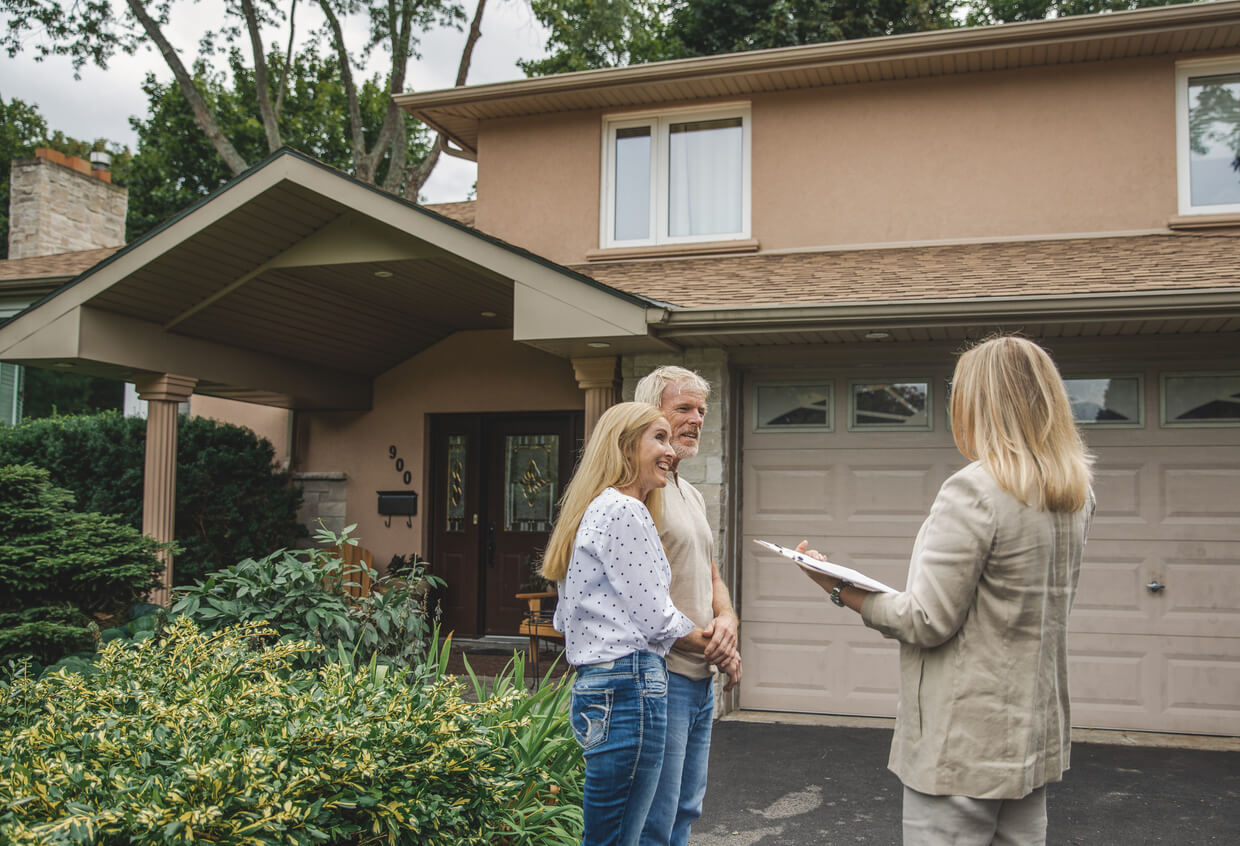
An inexpensive condo may seem enticing at first, but when things start to break down, you’ll rapidly find yourself paying exorbitant maintenance costs. It’s also crucial to look into the building’s age because maintenance may be required. Older structures require costly renovations to their electrical, plumbing, and roofing systems. Owners of older condos who need costly repairs must pay additional assessments if the building’s reserve money is insufficient.
-
Exclude Unimportant Amenities
Even if the owner of a condo doesn’t utilise the facilities, they are still liable for maintenance fees. Because they are more expensive to maintain, condo fees are sometimes higher in apartments with more amenities. As a result, buyers should only take into account amenities they intend to use.
For instance, condo owners must pay higher charges since maintaining pools is expensive. If you do not plan to utilise the swimming pools, take them out of your loop to avoid paying monthly costs.
-
Look Out for Close-by Construction Plans

It is best to be informed of any planned building near your apartment. Being surrounded by traffic, dust, or construction is not enjoyable. Also, it can hinder your view if they are nearby building another unit.
-
Check Out the Condo Board Rules
Condo owners are subject to additional regulations that are upheld by the condo board. It is crucial to comprehend these guidelines because they are intended to foster a harmonious co-living environment. Standard regulations outline how property owners should conduct themselves in your complex and cover topics like parking and subletting.
Depending on how serious the violation is, breaking these regulations could result in fines or even eviction. Make sure you study the rules before signing a purchase agreement to prevent this scenario. To have the buy and sale agreement reviewed by legal counsel, think about doing so.
-
Check out the Parking Structure
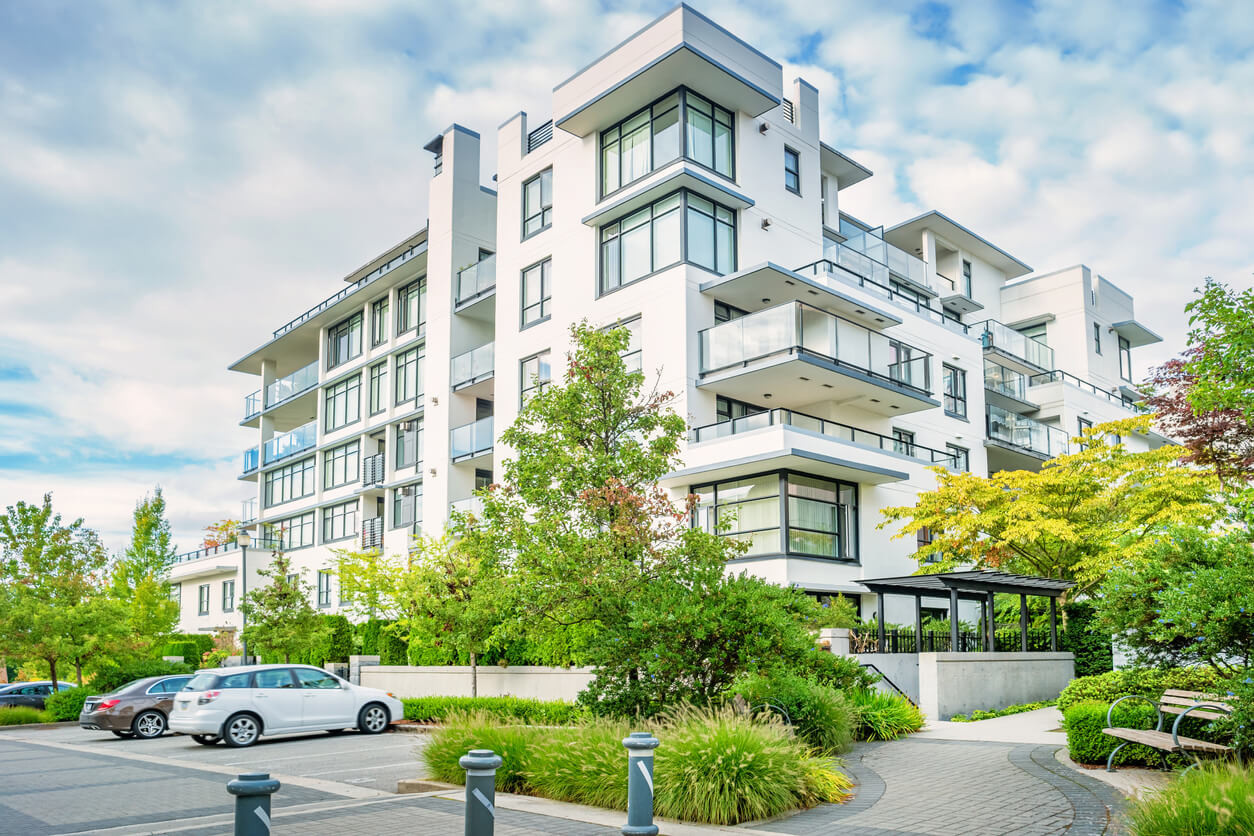
It’s important to comprehend the condo’s parking structure because parking in a metropolis is not enjoyable. Check to see if there is enough resident parking if you intend to drive.
You should also be aware of the availability of the parking for guests. It’s hardly considerate to make guests drive all over and pay for parking if you’re inviting pals over.
-
Check out the Airbnb Policy
It can be annoying to try to sleep while loud parties are going on next door. Condos that allow Airbnb rentals may experience this. To see if the building has any active listings, double-check the Airbnb app. While claiming to prohibit Airbnb, some buildings may not actually uphold their prohibition. Also, visitors could damage facilities that you have to pay to fix. If your condo accepts Airbnb, check to see whether such units must stay on specific floors and attempt to steer clear of them.
-
Calculate the Total Elevators
It might be annoying to be late due to a slow-speeded elevator, especially if you reside on a higher floor. Make sure there are enough and available to manage peak hour traffic if your unit requires you to use one. Your waiting periods and stress will be reduced in condos with additional elevators.
Even dedicated elevators for upper floors are available in certain residences. Your wait time will be greatly decreased as a result of not having to halt on every floor. If you must have this feature, consult a real estate professional to make sure you receive what you desire.
How To Purchase a Condo in Canada

Always keep in mind the below steps and benefits when buying a condo.
-
Steps to buy a condo in Canada
- Always save a good amount for a down payment by estimating the average condo price.
- Chalk out your budget after cutting all the important expenses.
- Check for grants and rebates
- Go for a favourable deal and not under market pressure.
- Get a pre-approval for mortgage
- Find a condo and condo buying tips be it with a help of realtor
- Make an offer and contact an attorney for better negotiation.
-
Benefits of buying a condo
- Condos are reasonable than houses
- No external maintenance and repairs
- Easy access to multiple amenities
- Possibility to live near your workplace
- Easy management in terms of rental investments.
Is Purchasing a Condo a Good Investment?
For those wishing to invest passively, condominiums are a viable choice. There is less labour involved than with a single-family home because the condo board takes care of maintenance. Condo buying tips and costs, however, may cause your ROI to fall below that of a single-family home. Investors in condos must accept this cost-benefit trade-off.
Cost of Purchasing a Condo in Canada
The two major costs that you will see at the time of purchasing condos in Canada includes the down payment and the closing cost. Let’s understand both of these costs below in detail for an easy buy.
-
Down payment
A down payment is the cash you spend upfront to purchase a house. Your credit rating, debt service ratios, and source of income all affect how much you can borrow (employee vs. self-employed). Your minimal down payment, however, is most significantly impacted by the buying price. Depending on the cost of the item, you will fit into one of three categories:
-
- Condominium expenses below $500,000: 5% required as a down payment and CMHC mortgage insurance
- Condominium prices range from $500,000 to $1,000,000: Minimum 5% down payment required for purchases under $500,000. 10% down is required for purchases over $500,000. For instance, the required minimum down payment with CMHC would be $55,000 (500,000*0.05 + 300,000*0.10) for a $800,000 condo.
- Over $1,000,000 is spent on a condo: 20% down payment minimum (not eligible for CMHC).
-
Closing cost
Closing costs are extra charges buyers make when completing a real estate deal. They are distinct from the listed price and consist of, but are not restricted to:
-
-
- Tax on land transfer
- Lawyer’s fees
- Real estate examination (in some cases)
- Mortgage failure protection (in some cases)
- Property tax for the rest of the year (in some cases)
-
There are, however, some circumstances in which buyers will contribute more or less towards closing costs. For instance, a buyer will need to be eligible for CMHC mortgage insurance if they have less than a 20% down payment. You must ascertain the provincial tax rate because these prices differ by area.
When purchasing residential real estate in Ontario and British Columbia, non-residents must also pay an additional speculation tax (NRST). These taxes must be paid at closing and often amount to 20% of the property value. Although a prohibition on foreign homeowners was suggested in the Canadian Federal budget for 2022, the NRST will still be in effect until the legislation is approved. Also, once the restriction is lifted, NRST will probably start up again.
The two key costs to be mindful of are these two. Government incentives, however, are also available to help with closing costs. The House Buyers’ Plan (HBP), the First-Time Homebuyers Program, and the GST/HST Rebate on New Homes are a few of the incentives available.
In a Nutshell
Canada is a country with multiple tax benefits when it comes to investing in the real estate market. And you are lucky if you choose to buy a condo as they are affordable compared to home. You can simply learn condo buying tips to earn the advantage of the Canadian real estate market and become a good investor. The attorneys and real estate agents are some easy approaches to make your condo buying deal even smoother.
You May Also Read :
| Guide To Money Saving Tips | Money Saving Tips |
| Tips For Buy a New Home in Canada | Buy a New Home in Canada |
| Buying Condo Apartment in Toronto | Condo Apartment in Toronto |
| Affordable Condos Buying Tips in Toronto | Buying Tips in Toronto |
Frequently Asked Question (FAQs)
Yes, buying a condo over a home brings lower property taxes and low maintenance costs than a house. Also, you get access to numerous facilities in a condo which you won’t get easily in a home.
In such cases you can talk to an attorney to negotiate with the lender or you can opt for a mortgage refinance or home equity line of credit to come out of financial distress.
Being a condo owner you can encounter problems like loud maintenance, fire drills, slow maintenance requests, and loud neighbours.
You must first talk to a real estate agent when buying a condo as they’ll guide you to and fro, secondly you must consider talking to a mortgage broker who can help you with available options or you can talk to the attorney to know more about the condo rules. Are there any advantages in purchasing a condo over buying or renting a home?
What if you can’t afford to pay both condo fees and mortgage amount at once?
What sort of issues can one expect as a condo owner?
Who should I talk to when purchasing a condo?


